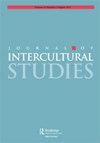揭开面纱:以新加坡视角审视多元文化主义的自由基础
IF 1
Q3 SOCIOLOGY
引用次数: 0
摘要
多元文化理论化假设了自由主义所采用的原则,多元文化主义者在自由民主的背景下阐述了他们的理论。这篇文章通过关注一个公开的非自由政体——新加坡,对这两种合并提出了质疑。它不是专注于发展和确定多元文化主义的规范性理由,而是提倡一种基于实践的方法,将多元文化主义视为一种接受文化差异的精神和维护这种精神的行动。这种方法可以让本文做三件事:首先,它证明了新加坡处理其内部种族多样性的方法确实是一种多元文化主义。其次,它突出了国家采用多元文化主义管理多样性的务实基础。第三,通过确定自由和非自由背景下多元文化实践的共性,本文呼吁对多元文化学者经常忽视的理论与实践之间的滑移进行更批判性的检查。本文章由计算机程序翻译,如有差异,请以英文原文为准。
Drawing Aside the Veil: Examining Multiculturalism’s Liberal Underpinnings with a Singaporean Lens
ABSTRACT Multicultural theorisations have presumed principles adopted from liberalism, and multiculturalists have explicated their theorisations within liberal democratic contexts. This article problematises both these conflations by focusing on an avowedly non-liberal polity, Singapore. Rather than focussing on developing and identifying normative justifications for multiculturalism, it advocates a practice-based approach which examines multiculturalism as an ethos of accepting cultural difference and actions that uphold such an ethos. This approach allows this paper to do three things: First, it demonstrates that Singapore’s approach to engaging with its internal ethnic diversity is indeed a form of multiculturalism. Second, it highlights the pragmatic basis for the country’s adoption of multiculturalism to manage diversity. Third, by identifying commonalities in multicultural practice in liberal and non-liberal settings, this article calls for a more critical examination of the slippage between theory and practice that is often overlooked by scholars on multiculturalism.
求助全文
通过发布文献求助,成功后即可免费获取论文全文。
去求助
来源期刊

Journal of Intercultural Studies
SOCIOLOGY-
CiteScore
1.80
自引率
10.00%
发文量
67
期刊介绍:
Journal of Intercultural Studies showcases innovative scholarship about emerging cultural formations, intercultural negotiations and contemporary challenges to cultures and identities. It welcomes theoretically informed articles from diverse disciplines that contribute to the following discussions: -Reconceptualising notions of nationhood, citizenship and belonging; -Questioning theories of diaspora, transnationalism, hybridity and ‘border crossing’, and their contextualised applications; -Exploring the contemporary sociocultural formations of whiteness, ethnicity, racialization, postcolonialism and indigeneity -Examining how past and contemporary key scholars can inform current thinking on intercultural knowledge, multiculturalism, race and cultural identity. Journal of Intercultural Studies is an international, interdisciplinary journal that particularly encourages contributions from scholars in cultural studies, sociology, migration studies, literary studies, gender studies, anthropology, cultural geography, urban studies, race and ethnic studies.
 求助内容:
求助内容: 应助结果提醒方式:
应助结果提醒方式:


